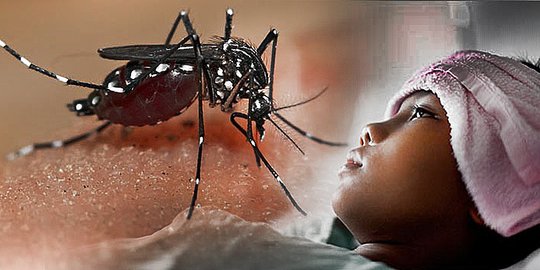Recognizing Early Symptoms and Preventing Dengue Hemorrhagic Fever (DHF)
ARTICLE INFORMATION
Admin
4/17/20246 min read


Apart from taking steps to protect yourself from mosquito bites, there are several other things we need to pay attention to to maintain the health and cleanliness of our bodies. First of all, it is important for us to maintain personal hygiene by diligently washing our hands using soap and clean water. This is an effective way to remove germs and bacteria that may stick to our hands after activities or touching dirty objects. Apart from that, we also need to pay attention to the cleanliness of the food we consume. Make sure the food we eat is fully cooked and stored properly to avoid the risk of food poisoning.
Also avoid consuming food that has expired or does not look fresh. Always remember to wash fruit and vegetables before consuming them, as they may be contaminated with pesticides or dirt. Furthermore, we also need to keep our surrounding environment clean. Make sure our house is clean of rubbish and dirt which can become a nest for insects or animals that cause disease. Throw away rubbish in the right place and diligently clean our house and yard. Apart from that, it is also important to keep toilets and sewers clean to prevent the spread of disease through water or air. Apart from maintaining cleanliness, we also need to pay attention to a healthy lifestyle.
Eating nutritious food, exercising regularly, and getting enough sleep are some of the habits that can improve our immune system. Also avoid smoking and drinking alcohol which can damage our body's health. In maintaining health, it is also important to pay attention to psychological factors. Stress and emotional distress can weaken our immune system, making us more susceptible to disease. Therefore, it is important to look for ways to manage stress such as meditating, exercising, or doing activities that we enjoy. In conclusion, maintaining the health and cleanliness of our bodies is our own responsibility. By following the steps mentioned above, we can protect ourselves and those around us from diseases and infections. Always remember to remain alert and maintain cleanliness in all aspects of our lives.
Early Symptoms of DHF to Watch Out for
Dengue hemorrhagic fever (DHF) is a disease caused by the dengue virus which is transmitted through the bite of the Aedes aegypti mosquito. This disease can attack anyone, both children and adults, and can be fatal if not treated properly. One of the important steps in preventing and controlling dengue fever is recognizing the early symptoms that need to be watched out for. Some early symptoms of dengue fever to watch out for include:
High Fever that Suddenly Appears One of the most common early symptoms of dengue fever is a high fever that suddenly appears. This fever usually lasts for 2-7 days and can reach a temperature of 39-40 degrees Celsius. This high and sudden fever needs to be watched out for because it can be a sign of dengue virus infection.
Pain behind the eyes and in the joints Apart from high fever, the initial symptom of dengue fever that you need to watch out for is pain behind the eyes and in the joints. This pain usually feels more intense when moving or pressing on the affected area. Pain behind the eyes and in these joints can be a sign of inflammation caused by dengue virus infection.
Nausea and Vomiting The next early symptoms of dengue fever that you need to watch out for are nausea and vomiting. Nausea and vomiting usually occur suddenly and can occur several times a day. You need to be wary of nausea and vomiting because it can cause dehydration and decreased appetite.
Rashes on the Skin Apart from the symptoms above, the initial symptom of dengue fever that you need to watch out for is a rash on the skin. This rash usually appears after a few days of fever and can consist of red spots that spread all over the body. This rash on the skin needs to be watched out for because it can be a sign of bleeding under the skin.
Decrease in the number of platelets in the blood. One of the early symptoms of dengue fever that you need to watch out for is a decrease in the number of platelets in the blood. Platelets are a type of blood cell that plays a role in the blood clotting process. If the number of platelets in the blood falls, the body's ability to stop bleeding will decrease.
Unusual Fatigue Another early symptom of dengue fever that you need to watch out for is unusual fatigue. This fatigue usually occurs suddenly and can last for several days. This unusual fatigue needs to be watched out for because it can be a sign of dengue virus infection which disrupts the immune system. Apart from the symptoms above, there are also other symptoms to watch out for, such as stomach pain, bleeding from the nose and gums, and drastic weight loss. If you experience one or more of the symptoms above, immediately consult a doctor to get the right diagnosis and treatment. It is important to remember that the initial symptoms of dengue fever can be similar to the symptoms of other diseases, therefore, an accurate diagnosis is very important in treating dengue fever.
Prevention and Control of DHF
To prevent the spread and control of dengue fever, we need to take several effective preventive steps. Some steps to prevent and control dengue fever that need to be taken include:
Maintaining a Clean Environment The first step in preventing and controlling dengue fever is to maintain the cleanliness of the environment around us. This can be done by draining and covering all water reservoirs, such as bathtubs, buckets and rainwater reservoirs. Maintaining a clean environment is important because the Aedes aegypti mosquito, which spreads the dengue virus, usually breeds in places that contain water. Apart from that, it is also necessary to control mosquito vectors by using insecticides or larvicides to eradicate adult mosquitoes and mosquito larvae.
Using a mosquito net while sleeping. Apart from keeping the environment clean, we also need to protect ourselves from mosquito bites by using a mosquito net while sleeping. Using a mosquito net when sleeping can reduce the risk of mosquito bites which can cause dengue virus infection. Make sure the mosquito net used is in good condition and does not have holes so that mosquitoes cannot enter. Apart from that, using mosquito nets that have been coated with insecticide can also help repel mosquitoes.
Wearing clothes that cover the whole body. Apart from using mosquito nets, we also need to wear clothes that cover the whole body to protect ourselves from mosquito bites. Choose loose, light-colored clothing to avoid mosquitoes that are attracted to dark colors. Apart from that, avoid wearing clothes made from thin materials that are easily penetrated by mosquitoes. If possible, wear clothing that has been coated with insecticide to provide additional protection.
Using anti-mosquito medication. Apart from the steps above, we can also use anti-mosquito medication to protect ourselves from mosquito bites. Choose an anti-mosquito medication that contains active ingredients such as DEET or picaridin, and use it according to the instructions for use listed on the packaging. Don't forget to bring anti-mosquito medication when traveling or doing activities in mosquito-prone areas. Apart from that, you need to remember that the use of mosquito repellent on children and pregnant women needs to be done carefully and according to the doctor's recommendations.
Immediately consult a doctor. If you experience some of the early symptoms of dengue fever mentioned above, immediately consult a doctor to get the right treatment. DHF can develop quickly and can be fatal if not treated properly. The doctor will perform a physical examination and blood tests to confirm the diagnosis of dengue fever and provide appropriate treatment. Apart from that, the doctor will also provide advice and information regarding more specific preventive measures based on our condition and situation.
Conclusion
The increase in the number of dengue hemorrhagic fever (DHF) sufferers is a problem that needs to be watched out for. DHF is a disease caused by the dengue virus which is transmitted through the bite of the Aedes aegypti mosquito. Early symptoms of dengue fever that need to be watched out for include high fever that suddenly appears, pain behind the eyes and in the joints, nausea and vomiting, rashes on the skin, a decrease in the number of platelets in the blood, and unusual fatigue. If you experience these symptoms, immediately consult a doctor to get the right treatment. Apart from that, preventing and controlling dengue fever is also important.
Maintaining a clean environment is an effective step in preventing the spread of dengue fever. The Aedes aegypti mosquito breeds in places that have stagnant water, such as bathtubs, water reservoirs and unkempt flower pots. Therefore, it is important to drain and clean these areas regularly. Apart from maintaining a clean environment, using a mosquito net while sleeping can also help protect yourself from mosquito bites. The mosquito net used should have small holes so that mosquitoes cannot enter. Apart from that, wearing clothes that cover the whole body can also be an effective preventive measure. Apart from the steps above, using anti-mosquito medication can also help prevent Aedes aegypti mosquito bites.
Mosquito repellent containing active ingredients such as DEET or picaridin can be used on skin or clothing to repel mosquitoes. However, remember to read the instructions for use and follow the recommended dosage. Apart from taking preventive measures, it is also important to immediately consult a doctor if you experience symptoms of dengue fever. The doctor will perform a physical examination and may order blood tests to confirm the diagnosis. Treatment for dengue fever generally involves getting enough rest, consuming enough fluids, and avoiding the use of medications containing aspirin. In some more severe cases, hospitalization may be necessary to monitor the patient's condition. By taking appropriate preventive and control measures, it is hoped that we can reduce the risk of contracting dengue fever and protect our health and the surrounding environment. Increasing public awareness about the importance of preventing dengue fever is also urgently needed to reduce the spread of this disease.
Contact US
Bypass Prof. Dr. Ida Bagus Mantra No.99, Negari, Kec. Banjarangkan, Klungkung Regency, Bali 80752
(0366) 5684001/5584000
grhabhaktimedika@gmail.com
Copyright © 2025 Grha Bhakti Medika Hospitals.
WA: 0821-4607-8245 - (Front Office)
